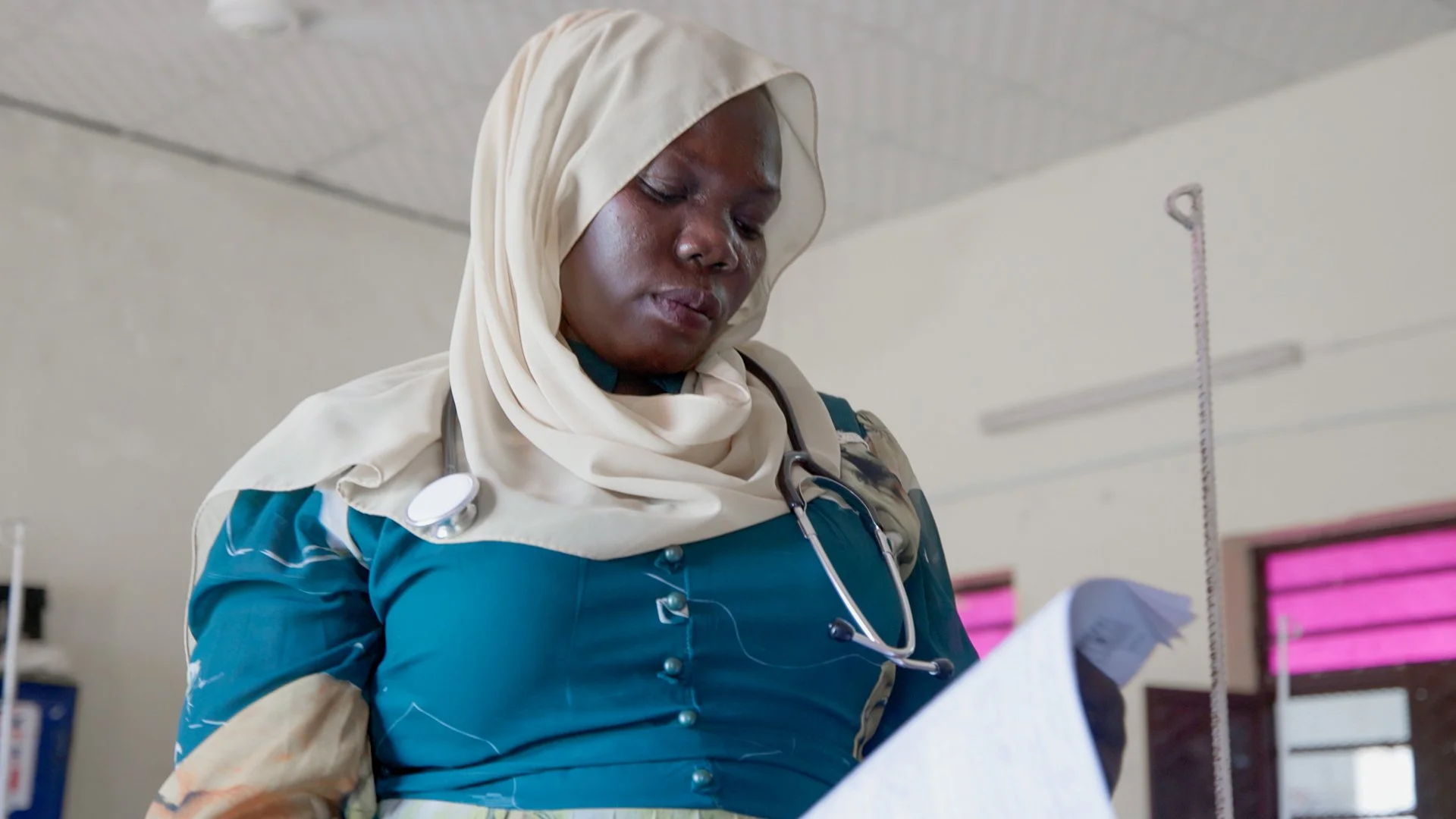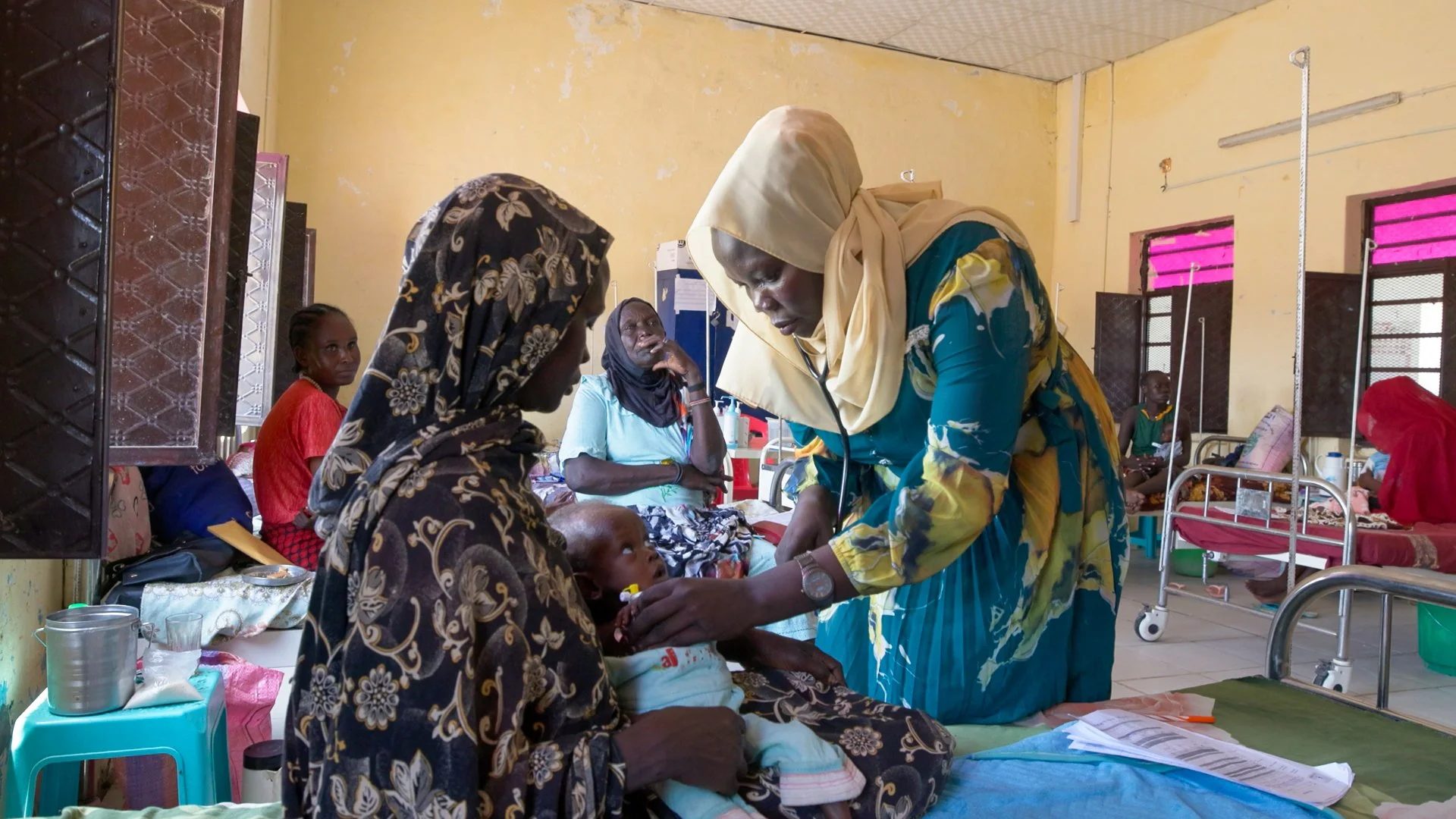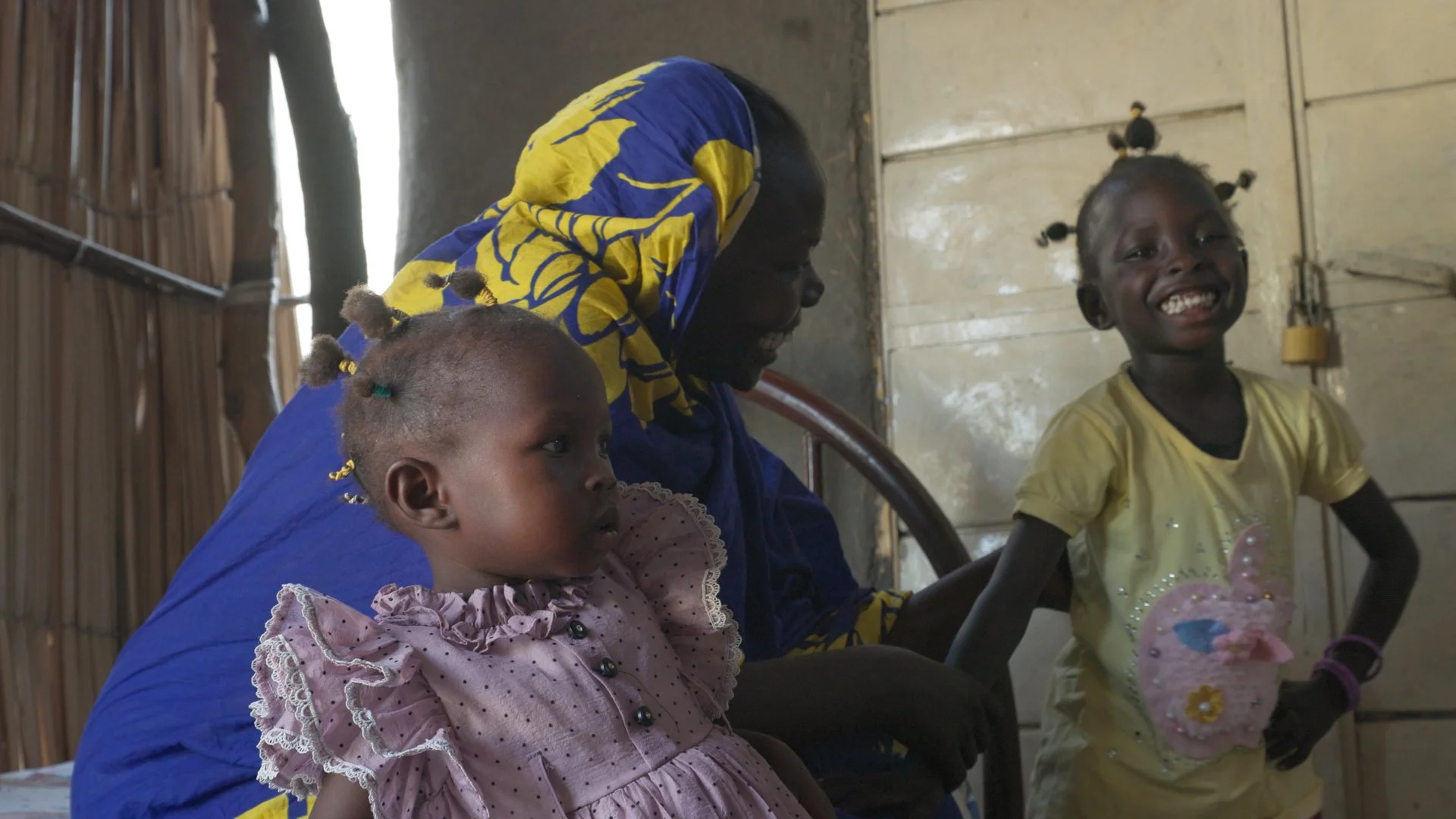Meet Dr. Amal, South Sudanese medic who dedicates life to serving children
Dr. Amal Gokokui on a routine check at Renk Hospital.
Once she clocks out at Renk Hospital, after a tiring shift, Dr. Amal Gokokui takes up her other role of a mother. Every day, she plays with her three daughter – turning each evening into a cherished ritual — a simple yet powerful way of her family to stay connected and recharge.
During these special bonding moments, Dr. Amal allow every child to express themselves by sharing anacdots of whatever took place during the day. These range from little and yet exciting school adventures or funny little things that happened while she was at work. Sometimes, she lends a hand with their homework. On other days, they just kick back and enjoy a movie together on the family’s plasma televison set.
Dr. Amal’s love for children blossomed in Khartoum where she received her post-secondary education. Today, she stands out as one of the few female clinical officers who’ve dedicated their lives to caring for vulnerable — children in South Sudan.
Dr. Amal Gokokui attending doing routine ward round at Stabilizaton Centre which supports malnourished childrem. The Centre which is located at Renk Hospital is supported by UNICEF.
“I had a dream of helping people ever since I was young,” recalls Dr. Amal, a native of Renk, Upper Nile State.
Growing up, her dream was always to touch lives. That how she ended up at International University of Africa to study medicine before returning to her home state – Renk, Unity State, where she is currently practicing clinical medicine.
“I liked to help people a lot,” she added with a tender and faint but infectious smile.
“My dream was to study something that allows me to help others. While growing up, I loved medicine and I wanted to be a doctor,” she recalled her memorable childhood.
The medicine is a demanding career. Balancing between work and family can be daunting for women, especially.
This can best be demonstrated by the fact that Renk Hospital has only two female clinicians staff. Despite the stressful working condition, every morning, Dr. Amal reports to Renk Hospital, where she works at the Stabilization Centre dedicated to handling children — especially those battling malnutrition-related cases.
“When we came to Renk after the 2013 war, everything was destroyed. The hospital wasn’t functioning. We started working from 8 to 12 p.m., then gradually extended hours. Now, we work 24/7.”
The poor working conditions, perhaps, played a part in the sudden exit of her colleague, one of the only three female South Sudanese she studied with in Khartoum – whom would later leavee the practice.
Dr. Amal Gokokui attending doing routine ward round at Stabilizaton Centre which supports malnourished childrem.
“We had no lab. We worked on clinical diagnosis. We treated patients based on symptoms, which is hard. Even now, we have no active lab in Renk. Only private sectors have some services.”
A jovial medic who is serving her community with the same passion that she shows to those she share blood relation wit, Dr. Amal does not shy away from discussing the most important things that matter to her – her family.
“I met my husband in Khartoum during our studies. He was studying at a different university. We met during student celebrations. Now he works in Juba, and I am here in Renk. We see each other occasionally.”
When she’s not taking care of the wellbeing of her own family, you will often meet Dr. Amal in the corridors of Renk Hospital where she handles pediatric related issues.
“When I help someone and see the mother or caregiver smile because their child is getting better — that gives me positive energy. We work as one team. Appreciation makes us happy.”
Interestingly, all her three children now want to take after her and extend the family service to humanity.
“All of them (her children) say they want to be doctors like me. But I encourage them to choose their own path when they grow up,” she says of the dreams of her children.
Dr. Amal Gokokui sharing a moment with her family after work. She is a Clinical Officer at Renk Hospital where she works at a UNICEF-funded Satabilization Centre.
But Dr. Amal’s journey has not been without challenges. The Sudan crisis stretched Dr. Amal and the team at Renk Hospital to their maximum elastic point. That. She says, was a critical point in her career.
“I started working here in June 2023. When the Sudan war started, we received many people. The situation is bad — they arrive with malnutrition, diseases, no resources. Some come back again after being discharged because they have no food at home. We also receive orphaned children. It’s hard — even the NGOs can only support for a short time.”
Despite all these challenges, is still willing to give her best amidst waning hopes, especially with reduced funding following the recent decision by the government of the United States to cut funding for healthcare in South Sudan.
Dr. Amal Gokokui at the UNICEF supported Stabilization Centre at Renk Hospital.
“Before, there was hope. Now, things are unclear. There are many challenges. Health facilities rely on partners — there’s no strong national plan or budget. The Ministry of Health has no clear picture of the future. If NGOs like UNICEF pull out, it would be a disaster.
“We’re already affected — about 28 hospital staff lost their jobs due to funding cuts. We were supported by UNICEF, but now they say there's no more funding. The government needs to step up.
Taking care of children requires dedication both from the caregivers and donors alike.
“Malnourished children can deteriorate quickly. If a child goes into shock, we transfer them to ICU — give oxygen, fluids, and stabilize them before moving them back,” she gives a glimps of what her job entails.
The Stabilization Centre at Renk Hospital is supported by UNICEF.






